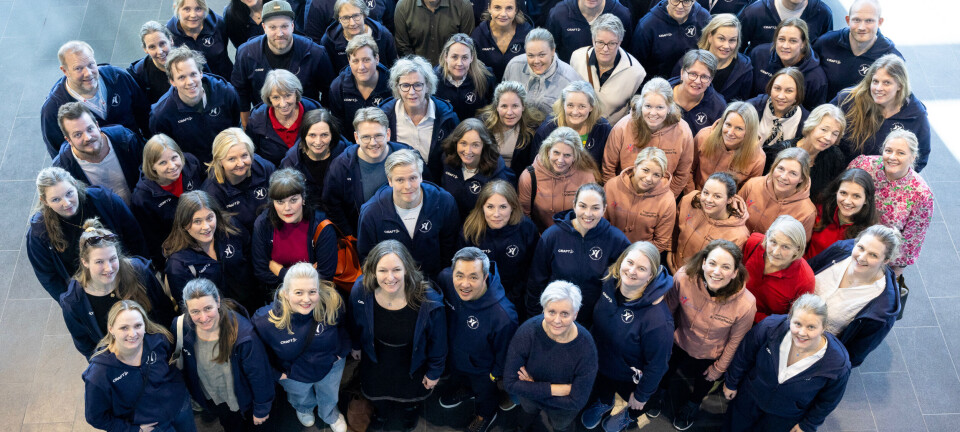
Når kropp er vanskelig: Psykomotorisk fysioterapi for pasienter med spiseforstyrrelser. En intervjustudie
Vitenskapelig artikkel i Fysioterapeuten 4/2017.
Karine Børsum, psykomotorisk fysioterapeut, MSc. helsefag. Varden spesialistsenter. karineborsum@hotmail.com
Målfrid Råheim, professor (100%) ved Institutt for global helse og samfunnsmedisin, University of Bergen (UiB).
Denne vitenskapelige originalartikkelen er fagfellevurdert etter Fysioterapeutens retningslinjer, og ble akseptert 26.1.2017. Det er innhentet informert samtykke fra deltakerne i studien. Ingen interessekonflikter oppgitt.
Sammendrag
Bakgrunn: Forskning på behandling av pasienter med spiseforstyrrelser er omfattende, men lite finnes om behandling som tar utgangspunkt i kroppserfaring. Dette til tross for at det er en lidelse hvor det handler mye om kropp. Formålet med denne studien var å se på psykomotorisk fysioterapi sitt bidrag i behandlingen av pasienter med spiseforstyrrelser sett fra terapeutperspektivet.
Metode: Semi-strukturerte intervjuer med terapeuter i samme behandlingsteam ble gjennomført på en spesialenhet for spiseforstyrrelser: psykomotorisk fysioterapeut, psykolog, psykiater og spesialsykepleier. Analysen ble gjennomført ved hjelp av systematisk tekstkondensering.
Funn: Artikkelens funn består av to hovedtemaer: I. Psykomotorikerens bidrag i behandlingen: «kroppseksperten», med undertemaene: Arbeidet direkte på kroppen: om å gå rett til sakens kjerne og Kunnskapsformidling om kropp og trening. II. Behandlingsteamet: tverrfaglig samarbeid i praksis, med undertemaene: Om behandlingsteam, behandlingsmøter og behandlingsinnhold og Samarbeid ut fra felles forståelse og likeverd.
Konklusjon: Psykomotorisk fysioterapi bidro med noe som er vesentlig, annerledes og utfyllende i forhold til andre behandlingstilnærminger ved behandling av pasienter med spiseforstyrrelser i det tverrfaglige teamet. Den kroppslige innfallsvinkelen var forbundet med å gå «rett til sakens kjerne», og var følgelig sett på som helt sentral.
Nøkkelord: felles forståelse, psykomotorisk fysioterapi, spiseforstyrrelser, tverrfaglig samarbeid.
A body-oriented approach when the body is problematic: Psychomotor physiotherapy as an approach in the treatment of patients with eating disorders. An interview study.
Abstract
Background: Research on the treatment of patients with eating disorders is comprehensive, but little exists on treatments that are based on bodily experience. This is despite the fact that this is an illness that is closely associated with the body. The aim of this study was to look at the contribution of psychomotor physiotherapy in the treatment of patients with an eating disorder, seen from the therapist perspective.
Method: Semi-structured interviews with therapists in the same team were carried out at a special unit for eating disorders. Psychomotor physiotherapist, psychologist, psychiatrist and specialist nurse. The analysis was conducted using systematic text condensation.
Findings: The findings consist of two main topics: I. The contribution of the psychomotor physiotherapist to the treatment: ‘the body expert’, with the following subtopics: Working directly on the body: About going straight to the core; and Dissemination of knowledge about the body and training. II. The treatment team: Interdisciplinary cooperation in practice, with the following subtopics: About treatment teams, treatment meetings and treatment content; and Cooperation based on common understanding and equality.
Conclusion: Psychomotor physiotherapy contributed something that is essential to, different from and complementary to the other approaches in the interdisciplinary team in the treatment of patients with eating disorders. The body-oriented approach was associated with ‘getting straight to the core of the matter’ and was therefore considered important.
Keywords: common understanding, eating disorders, interdisciplinary cooperation, psychomotor physiotherapy.
Les hele artikkelen i Fysioterapeuten eblad.

























